Recent Blog Posts
Two Driving Permits That May Benefit You After a DUI
Posted on May 16, 2022 in Driving Under the Influence (DUI)
 Driving under the influence of alcohol can lead to criminal and administrative consequences. Not only does a DUI offender face steep fines and even jail time, but they may also lose their driver’s license. Once a person’s driver’s license is suspended or revoked, it is illegal for the individual to drive any motor vehicle. Driving with a suspended or revoked license due to a DUI conviction is a Class A misdemeanor punishable by up to $2500 in fines and a mandatory minimum penalty of 10 days in jail or 30 days of community service.
Driving under the influence of alcohol can lead to criminal and administrative consequences. Not only does a DUI offender face steep fines and even jail time, but they may also lose their driver’s license. Once a person’s driver’s license is suspended or revoked, it is illegal for the individual to drive any motor vehicle. Driving with a suspended or revoked license due to a DUI conviction is a Class A misdemeanor punishable by up to $2500 in fines and a mandatory minimum penalty of 10 days in jail or 30 days of community service.
Fortunately, there may be a way to get back on the road legally after a drunk driving arrest or conviction. Illinois offers special driving permits that allow DUI offenders to drive without the risk of further criminal charges.
Monitoring Device Driving Permit
When someone is arrested for driving under the influence because they failed or refused to take a breath alcohol test, their driver’s license is suspended. In Illinois, drivers do not have to be convicted of DUI to receive a driver’s license suspension. Fortunately, the state offers means of regaining driving privileges during the suspension period. A Monitoring Device Driving Permit is available for individuals subject to statutory summary suspensions after a drunk driving arrest.
Continue Reading ››
What Is Reckless Driving in Illinois?
Posted on April 05, 2022 in Traffic Crimes
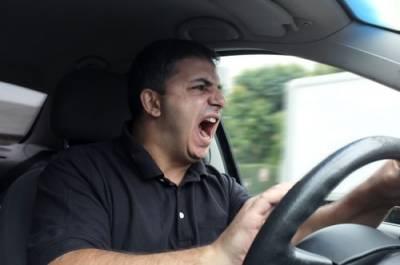 According to Illinois law, reckless driving is not just a traffic offense. It is a serious crime that can include prison time. Therefore, it is important to know just what reckless driving is and how to defend against it if you are charged with it.
According to Illinois law, reckless driving is not just a traffic offense. It is a serious crime that can include prison time. Therefore, it is important to know just what reckless driving is and how to defend against it if you are charged with it.
Unlike many traffic offenses such as speeding, which are defined by specific standards such as “a certain number of miles per hour over the limit,” the definition of reckless driving is more general. In the Illinois Vehicle Code, reckless driving is defined as driving “with a willful or wanton disregard” for others, or “knowingly” driving a vehicle up an incline to jump it. Without spelling out the specific actions that automatically establish reckless driving (save for taking your vehicle airborne), the law empowers the arresting officer and the judge to decide whether your specific behavior amounts to reckless driving.
Continue Reading ››
Cannabis DUI Laws in Illinois
Posted on March 02, 2022 in Driving Under the Influence (DUI)
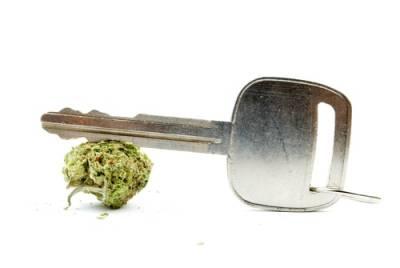 While DUIs are mostly associated with alcohol use, you can be charged with DUI for driving under the influence of any other mind-altering substance. Prior to 2020, operating a vehicle with any minute amount of cannabis in your system could lead to DUI charges. Cannabis was illegal at the time. However, it has now been legal in Illinois to possess and use small amounts of marijuana. This has affected the way DUI charges related to cannabis are handled. If you have been charged with a cannabis DUI, it is important to speak to a qualified attorney as soon as possible - ideally before your first court appearance.
While DUIs are mostly associated with alcohol use, you can be charged with DUI for driving under the influence of any other mind-altering substance. Prior to 2020, operating a vehicle with any minute amount of cannabis in your system could lead to DUI charges. Cannabis was illegal at the time. However, it has now been legal in Illinois to possess and use small amounts of marijuana. This has affected the way DUI charges related to cannabis are handled. If you have been charged with a cannabis DUI, it is important to speak to a qualified attorney as soon as possible - ideally before your first court appearance.
What Was the Problem With the Original Cannabis DUI Law?
A person’s level of alcohol intoxication can be easily measured through breath or blood tests. As the intoxicating effects wear off, a person’s blood alcohol content (BAC) drops. It is established that if a person’s BAC is 0.08% or higher, they are actively intoxicated and should not be driving. The mere presence of alcohol in trace amounts would not lead to a DUI charge. Otherwise, sober people could be arrested the day after drinking.
Continue Reading ››
4 Effective Defenses for Your Kane County DUI Charge
Posted on February 15, 2022 in Driving Under the Influence (DUI)
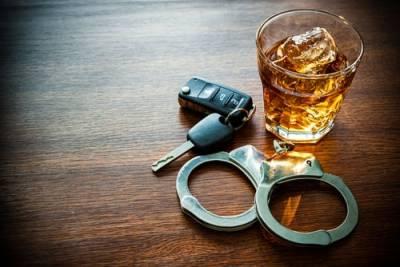 Getting a DUI in Illinois is a big deal. You are likely to have your license suspended, and you may even go to jail even if this is your first offense. Aside from that, a DUI never “drops off” your driving record. This crime becomes a permanent part of your criminal record, and it will turn up in any pre-employment background check. If at all possible, you will want to avoid a conviction.
Getting a DUI in Illinois is a big deal. You are likely to have your license suspended, and you may even go to jail even if this is your first offense. Aside from that, a DUI never “drops off” your driving record. This crime becomes a permanent part of your criminal record, and it will turn up in any pre-employment background check. If at all possible, you will want to avoid a conviction.
There are a few tricks smart attorneys have up their sleeves for defending people charged with DUI. Sobriety testing is not nearly as foolproof as the police and the prosecution would like you to believe. If you are facing a DUI charge, your best bet is to let an experienced lawyer assess your case and formulate a defense strategy.
What Are Some Possible Defenses to DUI in Kane County?
The defense that may work best for you completely depends on the specific facts of your case. It is important to let a qualified attorney who has experience with DUI cases work on your defense. Possible ways of fighting a DUI charge include addressing:
Continue Reading ››
Top 5 Reasons Cook County Drivers Lose Their Licenses
Posted on January 19, 2022 in Traffic Crimes
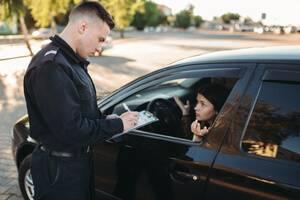 Even a brief inability to drive can interfere with your life significantly. Getting to school, work, doctor’s appointments, and even the grocery store can become quite a challenge when you are not able to drive yourself. Having a revoked or suspended driver’s license can be a nightmare for many Illinois residents, particularly those who live in more spread-out suburban areas. There are a number of reasons that the state of Illinois will suspend a person’s driving privileges - and not all of them have to do with the individual’s driving record.
Even a brief inability to drive can interfere with your life significantly. Getting to school, work, doctor’s appointments, and even the grocery store can become quite a challenge when you are not able to drive yourself. Having a revoked or suspended driver’s license can be a nightmare for many Illinois residents, particularly those who live in more spread-out suburban areas. There are a number of reasons that the state of Illinois will suspend a person’s driving privileges - and not all of them have to do with the individual’s driving record.
If you are facing a license suspension, there may be steps an attorney can help you take that could keep you on the road, or get you back to driving faster. It is very important that you refrain from driving while your license is suspended.
What Are the Most Common Reasons for Driver’s License Suspensions in Illinois?
Continue Reading ››
What Happens When You Get a Second DUI in Cook County?
Posted on December 28, 2021 in Driving Under the Influence (DUI)
 Getting one DUI can be bad enough. Even a single DUI in Illinois can result in serious penalties and a long license suspension depending on the circumstances. However, there are sometimes opportunities to mitigate the seriousness of the matter. A second DUI is much more serious, and you will be less likely to see leniency. Courts may be understanding of a one-time mistake, but when that same mistake is repeated, the penalties can be much more severe. It will be particularly important to make sure you are represented by strong legal counsel to give you the best chances of avoiding serious jail time and other harsh penalties.
Getting one DUI can be bad enough. Even a single DUI in Illinois can result in serious penalties and a long license suspension depending on the circumstances. However, there are sometimes opportunities to mitigate the seriousness of the matter. A second DUI is much more serious, and you will be less likely to see leniency. Courts may be understanding of a one-time mistake, but when that same mistake is repeated, the penalties can be much more severe. It will be particularly important to make sure you are represented by strong legal counsel to give you the best chances of avoiding serious jail time and other harsh penalties.
What Are the Penalties for a Second DUI in Illinois?
A second DUI without certain aggravating circumstances is still a misdemeanor, meaning you could be sent to jail for up to a year. You could also be ordered to pay up to a $2,500 fine, in addition to court costs. Unlike with a first DUI, you may not be eligible for a period of probation or other court supervision instead of more traditional sentencing. It is likely that jail time will be in your future if you are convicted of a second DUI - the minimum sentence is five days. If you are able to get community service ordered in lieu of jail time, expect to perform 240 hours of service.
Continue Reading ››
Which CDL Violations Could Lead to Losing My License?
Posted on November 24, 2021 in CDL Violations
 Losing a CDL would be a nightmare for a lot of people who make their living in the trucking and transportation industries. Without that license, professional truck drivers cannot work. Fortunately, complete revocation of a CDL is really only done in cases of severe misconduct, where allowing that individual to keep driving trucks would endanger the public. If you are accused of a serious CDL violation that puts your license at risk, you will want to work with an experienced attorney to give you the best odds of keeping your license when all is said and done.
Losing a CDL would be a nightmare for a lot of people who make their living in the trucking and transportation industries. Without that license, professional truck drivers cannot work. Fortunately, complete revocation of a CDL is really only done in cases of severe misconduct, where allowing that individual to keep driving trucks would endanger the public. If you are accused of a serious CDL violation that puts your license at risk, you will want to work with an experienced attorney to give you the best odds of keeping your license when all is said and done.
Which Violations Could I Lose My CDL Over?
Minor violations and even minor accidents are unlikely to cost you your CDL, unless they happen quite frequently. More severe violations that create a risk to public safety, however, could get your CDL taken away. Serious violations punishable by CDL revocation include:
Continue Reading ››
Can I Go to Jail for Speeding?
Posted on October 13, 2021 in Criminal Defense
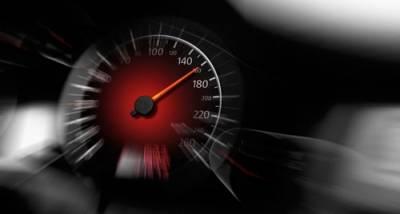 In Illinois, you could be sentenced to up to a year in jail for speeding - if you were going fast enough. Any speed more than 25 miles per hour over the speed limit is a criminal offense known as “aggravated speeding.” This offense is much more serious than a normal speeding ticket. While a speeding ticket can more or less be paid and forgotten about, an aggravated speeding charge typically requires you to appear in court and could carry much heftier fines - or jail time. If you are facing aggravated speeding charges, retaining an experienced traffic attorney should be a high priority.
In Illinois, you could be sentenced to up to a year in jail for speeding - if you were going fast enough. Any speed more than 25 miles per hour over the speed limit is a criminal offense known as “aggravated speeding.” This offense is much more serious than a normal speeding ticket. While a speeding ticket can more or less be paid and forgotten about, an aggravated speeding charge typically requires you to appear in court and could carry much heftier fines - or jail time. If you are facing aggravated speeding charges, retaining an experienced traffic attorney should be a high priority.
What Are the Penalties for Aggravated Speeding?
This depends on exactly how fast you were going. Aggravated speeding is a Class A misdemeanor if you were going 35 miles per hour or more over the speed limit. It is a Class B misdemeanor if you were going at least 26, but not more than 34 miles per hour over the speed limit. The Class A misdemeanor charge carries up to a year in jail and a $2,500 fine. The Class B version carries up to six months in jail and a $1,500 fine. Clearly, Illinois takes aggravated speeding charges very seriously - and so should you.
Continue Reading ››
Lowering the Speed Threshold on Chicago Speed Cameras Results in a Major Spike in the number of Tickets Issued
Posted on September 03, 2021 in Traffic Crimes
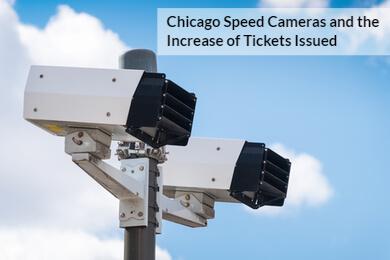 Several months ago, Chicago Mayor Lori Lightfoot ordered that the threshold for speed cameras placed around the city be dropped from 10 mph to 6 mph. Although it may seem like a small amount, that difference has resulted in a significant increase in the number of speeding tickets issued. This may be resulting in a nice financial windfall for the city, but for drivers, it has turned into quite an expensive headache, with some drivers receiving multiple speeding citations from the same camera, often within days of each other.
Several months ago, Chicago Mayor Lori Lightfoot ordered that the threshold for speed cameras placed around the city be dropped from 10 mph to 6 mph. Although it may seem like a small amount, that difference has resulted in a significant increase in the number of speeding tickets issued. This may be resulting in a nice financial windfall for the city, but for drivers, it has turned into quite an expensive headache, with some drivers receiving multiple speeding citations from the same camera, often within days of each other.
Chicago Speed Cameras
According to public records, there are 162 speed cameras located throughout the city. These cameras have been placed in 69 different safety zones that are within an eighth of a mile of a school or park. Fines for violations changed in March, when the city lowered the speed threshold. If a driver is speeding between 6 to 10 mph over the posted speed limit, they will be fined $35. If the driver is traveling over 10 mph, they will be fined $100.
Continue Reading ››
What is the Difference Between “Wet Reckless” and DUI Charges in Illinois?
Posted on August 09, 2021 in Criminal Defense
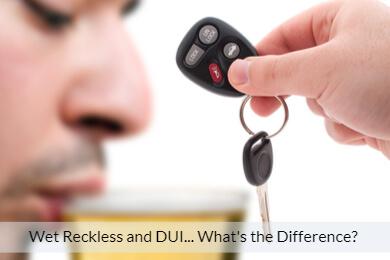 Driving under the influence of alcohol or drugs is illegal in all 50 states. However, the penalties of a drunk driving conviction vary from state to state. In Illinois, the consequences for driving under the influence (DUI) depend on several factors, including whether the person has previously been charged with drunk driving and whether certain aggravating factors were present. In some DUI cases, the defendant may be able to plead guilty to a lesser offense nicknamed “wet reckless” to reduce the penalties he or she faces. If you or a loved one have been charged with DUI in Illinois, it is important to carefully consider your options before making a decision about a plea deal.
Driving under the influence of alcohol or drugs is illegal in all 50 states. However, the penalties of a drunk driving conviction vary from state to state. In Illinois, the consequences for driving under the influence (DUI) depend on several factors, including whether the person has previously been charged with drunk driving and whether certain aggravating factors were present. In some DUI cases, the defendant may be able to plead guilty to a lesser offense nicknamed “wet reckless” to reduce the penalties he or she faces. If you or a loved one have been charged with DUI in Illinois, it is important to carefully consider your options before making a decision about a plea deal.
Penalties for Driving Under the Influence in Illinois
If a driver is arrested for driving under the influence and refuses to take a breath test or fails a breath test in Illinois, he or she is subject to an immediate driver’s license suspension. This suspension makes it illegal for the person to drive any vehicle. If the person is convicted of DUI and no aggravating circumstances are present, his or her driving privileges are revoked for one year. A first-time DUI is punishable by fines up to $2,500, and up to one year in jail, however, many first-time offenders can secure court supervision in lieu of jail time. If the driver had a blood alcohol content of 0.16 or more, was transporting a child under 16, or caused a crash resulting in serious injury or death, the penalties are much harsher. Some DUIs are classified as felonies.
Continue Reading ››


 312-861-1084
312-861-1084

 According to Illinois law,
According to Illinois law,  While DUIs are mostly associated with alcohol use, you can be charged with DUI for driving under the influence of any other mind-altering substance. Prior to 2020, operating a vehicle with any minute amount of cannabis in your system could lead to
While DUIs are mostly associated with alcohol use, you can be charged with DUI for driving under the influence of any other mind-altering substance. Prior to 2020, operating a vehicle with any minute amount of cannabis in your system could lead to  Getting a
Getting a  Even a brief inability to drive can interfere with your life significantly. Getting to school, work, doctor’s appointments, and even the grocery store can become quite a challenge when you are not able to drive yourself. Having a
Even a brief inability to drive can interfere with your life significantly. Getting to school, work, doctor’s appointments, and even the grocery store can become quite a challenge when you are not able to drive yourself. Having a  Getting one DUI can be bad enough. Even a single
Getting one DUI can be bad enough. Even a single  Losing a CDL would be a nightmare for a lot of people who make their living in the trucking and transportation industries. Without that license, professional truck drivers cannot work. Fortunately, complete revocation of a CDL is really only done in cases of severe misconduct, where allowing that individual to keep driving trucks would endanger the public. If you are accused of a serious
Losing a CDL would be a nightmare for a lot of people who make their living in the trucking and transportation industries. Without that license, professional truck drivers cannot work. Fortunately, complete revocation of a CDL is really only done in cases of severe misconduct, where allowing that individual to keep driving trucks would endanger the public. If you are accused of a serious  In Illinois, you could be sentenced to up to a year in jail for speeding - if you were going fast enough. Any speed more than 25 miles per hour over the speed limit is a criminal offense known as “
In Illinois, you could be sentenced to up to a year in jail for speeding - if you were going fast enough. Any speed more than 25 miles per hour over the speed limit is a criminal offense known as “ Several months ago, Chicago Mayor Lori Lightfoot ordered that the threshold for speed cameras placed around the city be dropped from 10 mph to 6 mph. Although it may seem like a small amount, that difference has resulted in a significant increase in the number of speeding tickets issued. This may be resulting in a nice financial windfall for the city, but for drivers, it has turned into quite an expensive headache, with some drivers receiving multiple
Several months ago, Chicago Mayor Lori Lightfoot ordered that the threshold for speed cameras placed around the city be dropped from 10 mph to 6 mph. Although it may seem like a small amount, that difference has resulted in a significant increase in the number of speeding tickets issued. This may be resulting in a nice financial windfall for the city, but for drivers, it has turned into quite an expensive headache, with some drivers receiving multiple

